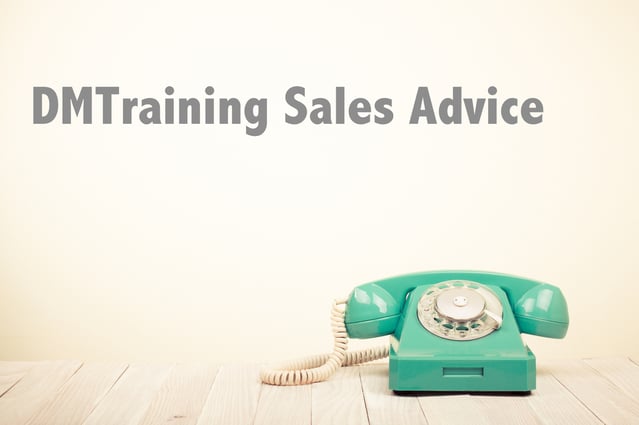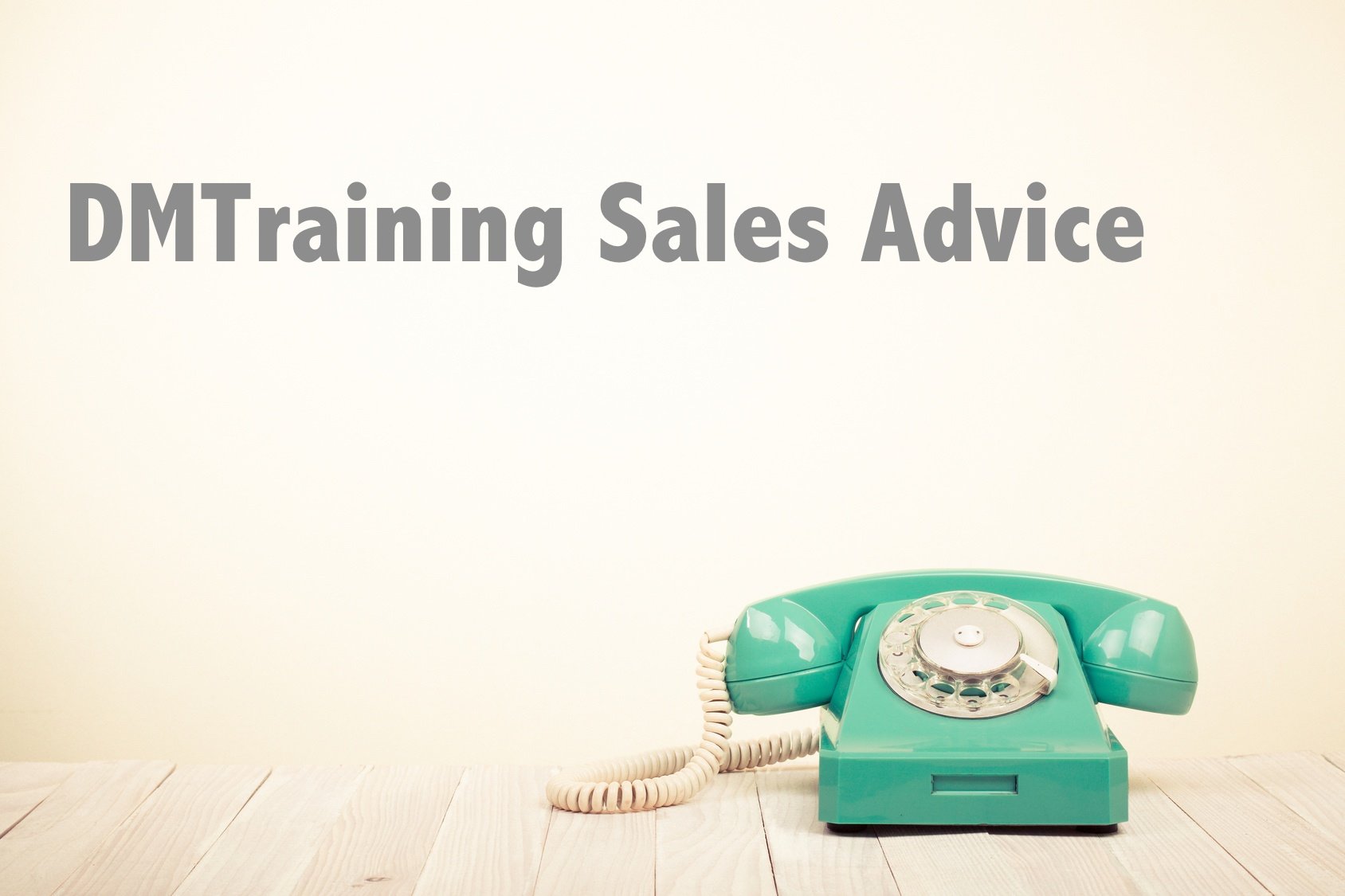DMTraining Sales Advice: Changing Contacts
In this new series, we will provide sales strategy answers for questions from our readers.
Question: I have been working with a major account for over a year and have developed a great relationship with my initial contact. Now they tell me a new person will be handling this area. Should I only communicate with the new person or continue communicating with my original contact?

The Advice: This has become a common sales challenge as companies are almost continuously changing everything, including decision makers.
To fully understand this challenge, let’s begin with a high-level overview of the buying process.
Whenever customers tell me what needs to happen, who I need to speak to, or what process I need to follow in order to get a sale I thank the person who told me, but inside I am suspicious.
How does that contact know? Have they ever tried to sell my product or service to their company? How much have they learned about this buying process from their previous buying decisions?
All day, every day I am involved in decisions about buying my service. What percentage of my contact’s time goes to that initiative? Maybe they have only once before made this kind of decision and that was more than a year ago.
That doesn’t make them qualified to become a salesperson at your company and I’m even skeptical how valuable their well-intentioned advice is for me trying to sell to their company.
Now let’s apply that thinking to the account manager who is managing an existing client whose contact is changing. Consider that before the existing account first agreed to buy, there were a whole bunch of people weighing in and finally they decided to go with your company. “They” also decided who would be the day-to-day contact for the salesperson, but that person may or may not have had much buying influence on the customer’s initial decision to go with your company or renew a year ago.
In theory, everyone on the client side is equally excited to work with you, but in reality internal politics, habits, fear of change, etc. cause some individuals to either want to change or prefer to avoid changes in salespeople, vendors, and partners.
Let’s not assume that the new person is simply filling in for the old person like a new actor playing a continuing part on a soap opera. Instead let’s assume each new person comes to the game with their own agenda so relationship-wise, we can’t simply pick up with new person where we left off with the old contact.
Let’s first reach out to all of our existing relationships in order to learn what we can about the new person. Let’s establish that although our official communication will be with the new person, it is our old contacts that can help us build a bridge to understand the backstory and motivators affecting the new person.
By continuing to maintain an “unofficial” communication pipeline with your original contacts, we can learn of new opportunities within the organization that our new person would not have told us about.
And if our previous contact leaves the organization, we are in a better position to follow them to their new gig if we are still in touch with them right until they leave.
Remember: an account manager’s job is go deep and wide throughout the organizations they are working with, in order to find upsell and renewal opportunities. Simply being an order taker to the new contact that we don’t even know will more likely than not limit long term sales opportunities.
Do you have any additional advice?
If you have a question and need a sales strategy, let us know by emailing most@dmtraining.net or leaving a comment below.
About Steve Bookbinder
Steve Bookbinder is the CEO and sales expert at DMTraining. He has delivered more than 5,000 workshops and speeches to clients all over the world and has trained, coached, and managed more than 50,000 salespeople and managers. Steve continuously refreshes his training content to reflect his latest first-hand observations of salespeople across industries and regions. Through him, participants in his workshops and coaching sessions learn the best practices of today’s most successful sellers and managers across industries. Steve understands that sales is a competitive game. To outperform competitors and our own personal best results, we need to out-prospect, out-qualify, out-present and out-negotiate everyone else, not merely know how to sell. Through his specialty programs in Pipeline Management, Personal Marketing, Great First Meetings, 2nd-level Questioning, Sales Negotiating, and Sales Coaching, Steve trains sales teams to master the skills they need to overcome the challenges they face in today’s world… and keep improving results year over year.





